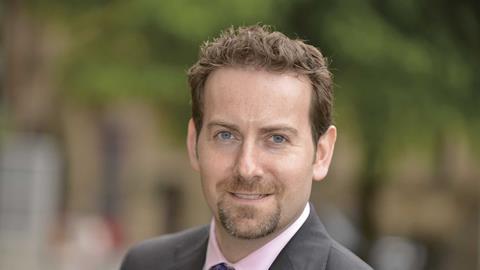Patent attorney and head of life sciences, Appleyard Lees, Manchester.
Initially I trained as a scientist and had absolutely no intention of following a legal career. I grew tired of laboratory work and had heard about being a patent attorney by word of mouth from scientists who knew others who had entered the profession. I wanted to use my scientific background in a commercial setting so it sounded ideal.
The exams to qualify as a patent attorney were challenging and it was pretty tough juggling full-time work (with all the deadlines, billings and marketing effort) with study (during evenings and weekends) for a number of years.
When I moved from private practice to in-house, I had to change my mindset and take responsibility for the decisions rather than pushing the responsibility to the client. You quickly get to a point where you are making some pretty big decisions which affect the company and the buck really does stop with you.
In-house and private practice roles are different. I think about the advice I used to give in private practice and now realise that, while the advice was sound from a legal point of view, it really wasn’t in the right format commercially.
The days when a client had to fit around the lawyers are long gone. Increasingly, each client wants a bespoke service which dovetails with their systems and operations and, of course, this changes regularly.
There is much more teamwork now. I work closely with other attorneys in my firm on cases involving hybrid technologies. Bioinformatics, for example, requires not only an understanding of molecular biology but also software, so we bring together attorneys from the life sciences team and the electronics team. This means that the client gets the best of both worlds and at the same cost, which would have rarely happened before.
For someone who came to law late, I still find the law incredibly stimulating. I am surrounded by intelligent people who continue to push each other. The patent law in my field continues to change rapidly both in Europe and internationally and this not only keeps me on my toes, but also maintains my interest.
My legal career has been anything but boring and has taken me around the world. I can’t think of another profession I would enjoy more. I would recommend being a patent attorney to anyone who has a science background, but who doesn’t want to stay in research, and wishes to keep learning about cutting-edge technology.
































No comments yet